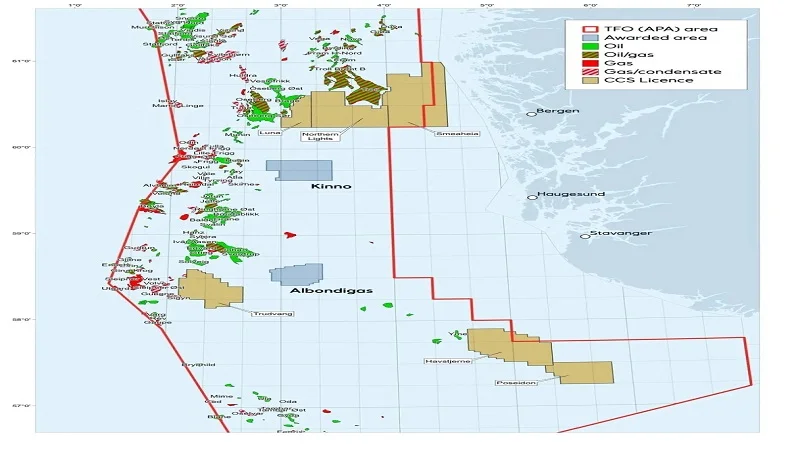 The Ministry of Energy has awarded Equinor the Albondigas and Kinno licenses in the North Sea for CO2 storage development.
The Ministry of Energy has awarded Equinor the Albondigas and Kinno licenses in the North Sea for CO2 storage development.
Considered important building blocks for developing the Norwegian Continental Shelf into a leading area for CO2 storage in Europe, each of the licenses are expected to have a storage capacity of 5 million tons of CO2 annually.
"We are very pleased to see the Norwegian authorities have made new CCS storage acreage available for exploration and that we have been awarded these two licenses. We see that demand for CO2 storage is increasing in several countries, and it is crucial to bring forward new CO2 storages quickly, so that we can offer industrial solutions that can support large scale decarbonisation of hard-to-abate industries in Europe," said Grete Tveit, Senior Vice President for Low Carbon Solutions in Equinor.
Equinor expect 4-8% real base project returns for its early phase CO2 storage business, and further value uplift potential when commercial markets are developed.
Equinor is maturing a ship-based solution and a massive pipeline to connect industrial emissions in Europe with storage opportunities at the Norwegian Continental Shelf. The planned pipeline named CO2 Highway Europe will have capacity to transport 25-35 million tons of CO2 per year from Belgium and France.
The Albondigas and Kinno licenses will serve as additional storage opportunities to the Smeaheia storage license which was awarded to Equinor in 2022. Smeaheia will be used as the anchor storage for this pipeline development.
Equinor is also about to complete the first phase of the Northern Lights CO2 transport and storage facility together with Shell and Total Energies. It will be ready to receive CO2 by the second half of this year.
"Scale-up of CO2 transport and storage is essential to meet the interest and demand for this type of services. Gaining access to more CO2 storage capacity aligns well with our ambition of having 30 to 50 million tons of CO2 transport and storage capacity per year by 2035," said Tveit.
